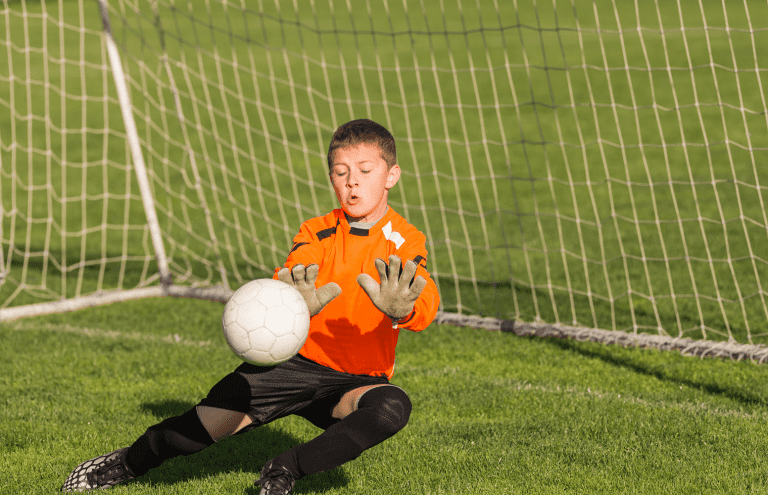
Goalkeeper Psychology Tips: Helping Boost Young Goalkeepers Self Confidence
Confidence in your ability is essential to succeed
Often children are placed in goal as a punishment or because no-one else wants to go in goal – what sort of message is that telling them about the position? Especially as the goalkeeper’s role is arguably the most important on the pitch for the team. The difference between winning and losing a game is often down to a goalkeeper. One mistake and that can be it – game over. So young goalkeeper self confidence is an important skill.
Goalkeeping is arguably the toughest position on the football pitch, especially for youngsters, whose thoughts and emotions can often fluctuate quickly. It is a position where an inner confidence is essential if you are going to be successful.
So if you’re the parent of a young goalkeeper you may wonder how you can MAKE your child feel confident when they’re goalkeeping?
The word MAKE is highlighted for a reason, because as a parent you simply can’t MAKE your child feel confident. It doesn’t work this way. They have to learn how to think confidently, as well as earning that confidence through consistent effort and positive performances.
A young goalkeeper is faced with many quick decisions to make on the pitch and often under pressure of some sort. This means goalkeepers need to be educated on how they can help themselves feel more confident, so that they can trust their instincts in matches.
Far too often, goalkeepers are overly reliant on their coaches or parents to help them feel confident.
How often do you see young goalkeepers looking to the sidelines for approval or for some support or advice? It’s very common isn’t it… And it isn’t a good thing.
Children can learn how to rely on themselves. It’s a skill they’re going to need to be successful as they get older.
So how can a young goalkeeper improve their own confidence?
Tip 1:
Mini Goals can help. It’s common to worry about what other people think during training or when competing. This can go on to distract them. So together, setting a mini goal for the match or event around “trusting” themselves is a helpful tactic.
Trust is a big thing for children, as they can often also overthink technical elements to goalkeeping in matches. They struggle to separate what they do in training and still have the instructions of coaches and parents in their minds in a match.
A mini goal, for these type of goalkeepers could also be “getting the job done”. This is linked to “winning ugly” as you often hear pundits say.
Tip 2:
Today with video technology available on mobile phones, putting together a highlight reel is another great way for goalkeepers to see themselves performing well. Watching this regularly can then help them visualise what they do at their best – unconsciously they then go on to believe in themselves more.
Tip 3:
Helping goalkeepers put together a “Confidence CV” is another useful strategy. The CV should be very much focused on their strengths on the pitch; tactical, technical, physical and psychological. As well as, their strengths away from football. Adding in their best achievements and moments that make them feel proud, again in and away from football, can help them.
If you found this goalkeeping psychology article useful feel free to share this with other goalkeepers, parents or coaches. For regular updates to help you improve your performance levels and gain a better understanding of how sport psychology can help you sign up to “The Mental Edge”.
Or to get in touch for one 2 one Sports Psychology Coaching with a Leading Sport Psychologist, David Charlton, based near Durham – Face to face, via the telephone, SKYPE or online via email available.

Best Wishes
David Charlton
Online Goalkeeping Psychologist who supports goalkeepers with their mental game all around the world from USA to Ireland and England to Australia, using ONLINE Video Conferencing.
Managing Director – Inspiring Sporting Excellence, Host of Demystifying Mental Toughness Podcast and Founder of The Sports Psychology Hub. With over a decades’ experience supporting athletes, coaches, parents and teams to achieve their goals, faster.
T: +44 7734 697769







